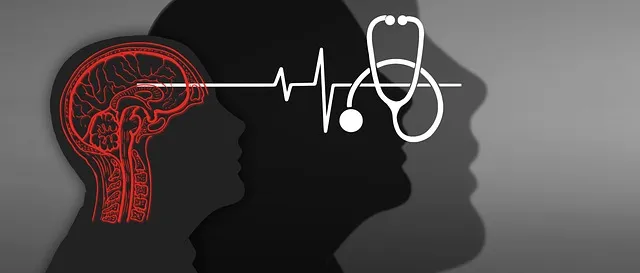The Crisis Intervention Teams (CITs) at Kaiser Permanente Mental Health Lakewood are crucial in responding swiftly and compassionately to individuals experiencing mental health crises. Trained in managing severe emotional distress, suicidal ideation, and psychotic episodes, these teams save lives and promote well-being through comprehensive training that includes self-esteem improvement and mental wellness journaling. Their holistic approach combines education with practical exercises, emphasizing empathy, active listening, and de-escalation techniques. This not only enhances crisis management but also reduces stigma and fosters a culture of care within communities, ultimately improving mental health outcomes and community safety.
“Crisis intervention teams (CITs) play a pivotal role in enhancing mental health support systems, especially in emergency settings. This article explores the critical function of these teams and provides an in-depth look at effective training programs, drawing insights from industry leaders like Kaiser Permanente Mental Health Lakewood.
We’ll uncover essential components for comprehensive CIT training, practical strategies for real-world application, and share success stories that demonstrate the profound impact of well-prepared crisis intervention teams.”
- Understanding Crisis Intervention Teams: Their Role and Impact
- Kaiser Permanente Mental Health Lakewood: A Model for Training
- Essential Components of a Comprehensive Crisis Team Program
- Practical Strategies for Effective Crisis Intervention Training
- Real-World Applications: Success Stories from the Field
Understanding Crisis Intervention Teams: Their Role and Impact

Crisis Intervention Teams (CITs) are specialized groups designed to respond to individuals in mental health crises, with a focus on de-escalation and support. These teams play a pivotal role in communities, particularly in areas like the Kaiser Permanente mental health Lakewood region, where access to immediate assistance is crucial. CIT members receive training to handle situations involving severe emotional distress, suicidal ideation, or psychotic episodes, ensuring that help arrives swiftly and effectively.
The impact of these programs extends beyond crisis resolution. By fostering a culture of compassion and understanding, CITs contribute to the broader goal of promoting emotional well-being. Through their interventions, they can help individuals build resilience, enhance self-esteem improvement, and develop positive thinking skills—all essential aspects of mental health. The presence of trained CITs in communities like Lakewood not only saves lives but also fosters a safer, more supportive environment for those struggling with mental health challenges.
Kaiser Permanente Mental Health Lakewood: A Model for Training

Kaiser Permanente Mental Health Lakewood stands as a beacon of excellence in crisis intervention team training. Their programs are meticulously designed to equip healthcare professionals with the skills needed to handle mental health crises effectively. By combining comprehensive mental health education programs with practical, hands-on exercises, they ensure that trainees are prepared to support individuals experiencing distress.
One innovative approach unique to Kaiser Permanente is the integration of self-esteem improvement techniques into their curriculum. This not only enhances the team’s ability to empathize and connect with clients but also fosters a culture of mental wellness within the healthcare setting. Additionally, they offer guidance on mental wellness journaling exercises, promoting reflective practice and continuous learning among team members. Through these initiatives, Kaiser Permanente Mental Health Lakewood sets a benchmark for comprehensive crisis intervention training.
Essential Components of a Comprehensive Crisis Team Program

A comprehensive crisis intervention team program is a multifaceted initiative designed to equip professionals with the skills and knowledge needed to effectively support individuals facing mental health crises. At Kaiser Permanente mental health Lakewood, for instance, such programs prioritize education and training that foster empathy, active listening, and de-escalation techniques. These core components ensure that team members can create safe, supportive environments and provide guidance tailored to each individual’s unique needs.
Beyond direct crisis management, an exemplary program incorporates mental wellness journaling exercises and self-care routine development for better mental health. Encouraging team members to engage in reflective practices helps them manage stress and maintain resilience, which is crucial when supporting others through challenging situations. Moreover, public awareness campaigns development can be a powerful tool within these programs, aiming to destigmatize mental health issues and promote early intervention, ultimately benefiting both the community at large and the crisis intervention team’s effectiveness.
Practical Strategies for Effective Crisis Intervention Training

Effective crisis intervention training involves a blend of theoretical knowledge and practical strategies to ensure preparedness and skillfulness in handling mental health crises, much like Kaiser Permanente mental health Lakewood services prioritize. Programs should incorporate interactive simulations, role-playing scenarios, and debriefings to mimic real-life situations. This allows trainees to apply emotional intelligence and burnout prevention techniques, crucial elements in Mental Wellness Coaching Programs Development, under pressure.
Additionally, training should emphasize active listening, empathy, and assertiveness skills, as these are foundational for effective crisis intervention. Incorporating cultural competency training is also essential, considering the diverse backgrounds of individuals seeking help. By integrating these practical strategies, participants gain confidence and proficiency in supporting others during crises, fostering an environment conducive to mental wellness development.
Real-World Applications: Success Stories from the Field

In the real-world application of crisis intervention team (CIT) training programs, organizations like Kaiser Permanente mental health in Lakewood have witnessed significant success stories. These CIT teams, comprised of mental health professionals and first responders, have demonstrated remarkable effectiveness in managing critical situations. By integrating coping skills development and self-care practices into their protocols, these teams have not only enhanced risk management planning for mental health professionals but also improved outcomes for individuals in crisis.
The impact of well-trained CITs extends beyond individual cases. The presence of such teams fosters a culture of care and resilience within communities, ensuring that those in need receive prompt and compassionate support. This holistic approach to mental health services not only improves the quality of care but also reduces the overall burden on emergency services, ultimately contributing to a safer and more supportive environment for everyone involved.
Crisis intervention team (CIT) training programs, as exemplified by Kaiser Permanente Mental Health Lakewood’s innovative approach, play a pivotal role in equipping healthcare professionals with the skills to manage and de-escalate crises effectively. By focusing on comprehensive training that includes evidence-based practices, realistic scenarios, and ongoing support, these programs significantly enhance the impact of CITs in real-world settings. Integrating practical strategies and success stories from the field, this article highlights the essential components for building robust crisis team programs, ultimately contributing to improved patient outcomes and enhanced mental health care.






